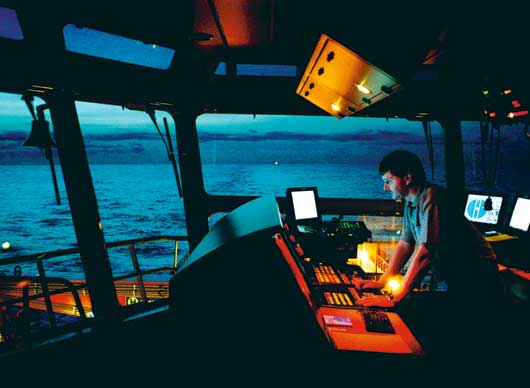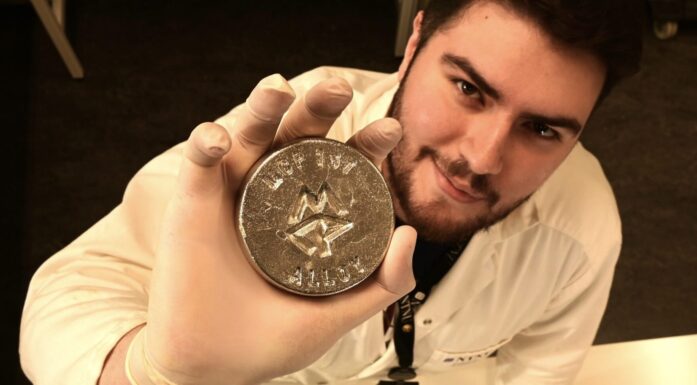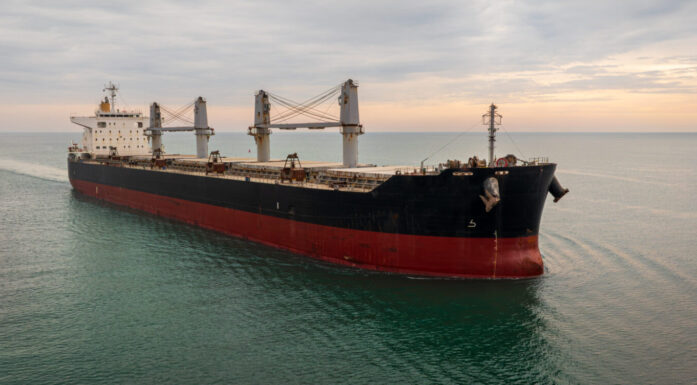Long night shifts are dangerous
But a workout can reduce the risk of accidents.
“When we are looking for oil in the fragile Arctic, it is more important than ever that seafarers get enough sleep, so the risk of mistakes and oil spills is minimized.”
So says Jakob Hønborg Hansen, who has written his PhD at the Norwegian University of Science and Technology (NTNU)’s Department of Biology on sleep patterns in crews on offshore vessels in the North Sea.
Offshore vessels are a lifeline for oil platforms, because they provide a constant supply of drill pipes, tools and other necessary materials and goods.
Hansen has obtained information from 2022 seafarers, and has made field measurements of the duration and effectiveness of sleep, and what this all means for the workers’ ability to use the knowledge they have.
Not enough sleep
Most of the workers on these ships have a schedule of six hours on and six hours off. They work in this pattern for four weeks in a row in conditions that include a lot of noise and little light. Shift work is perceived as tiring, because workers are in a constant state of sleep deficit, and some never get enough sleep.
When people get overtired, they become inattentive and forget important precautions. Many accidents have taken place in which poor judgement played a central role, including the 1989 Exxon Valdez accident in Alaska, the 1986 Chernobyl nuclear accident in Ukraine, a number of accidents at US nuclear power plants, and the 2009 collision between the offshore vessel “Big Orange XVIII” and the Ekofisk oil platform.
In addition, these accidents occurred between midnight and six o›clock in the morning, when circadian rhythms are at their least optimal for performance.
“This is a strong indication that circadian rhythms played a central role in these accidents,” says Hansen.
A universal problem
The amount of night work in today’s 24/7 society is steadily increasing. More than 30 per cent of the work-ing population now works outside of normal working hours.
Hansen’s findings on seafarers and night shift work is equally valid for anyone who works at night: firefighters, police, doctors, nurses, taxi drivers, oil workers and employees at petrol stations.
“The choice of relying on shift work usually involves an assessment of the economics of the situation, among other factors. But our knowledge of the effects of different shift work schemes and risks is too limited,” says Hansen.
“My research shows that employers should consider alternatives to six-hour shifts. Twelve- hour shifts are more optimal for sleep, or a new combination of eight hours on, eight hours off, four hours on and four hours off. Both of these rotations work better than the six-hour shift.”
Exercise sharpens alertness
Hansen also tested what a workout during the night would do to improve alertness.
“The work that seafarers and oil workers do is often quite sedentary. And when the only thing to do for twelve hours at a stretch is to monitor a screen, it can be difficult to remain vigilant,” he said.
The researcher made several laboratory-based measurements, and gave the subjects a session on a treadmill late at night. The result was an improvement in both alertness and reaction time after the workout and for some time afterward.
Other relatively simple measures that can help in coping with night work are to increase the light intensity and light exposure in work areas, eat healthy food and have someone to talk to.
Some professions, such as doctors, commonly work long shifts, sometimes as much as 24 hours.
“Perhaps doctors have an advantage by virtue of the fact that they are more physically active on their shifts, and their work is less monotonous. But doctors are ordinary people whose physical and mental state will be im-paired at the end of such a long shift. It is both irresponsible and dangerous to work such long night shifts,” Hansen says.
“There are great opportunities in many professions to improve shift work schedules, and it is essential to focus on this in future research,” he says.
Anne Sliper Midling





